DARK Season 2: Perplexing Sci-fi Noir Series Is Temptingly Creepy
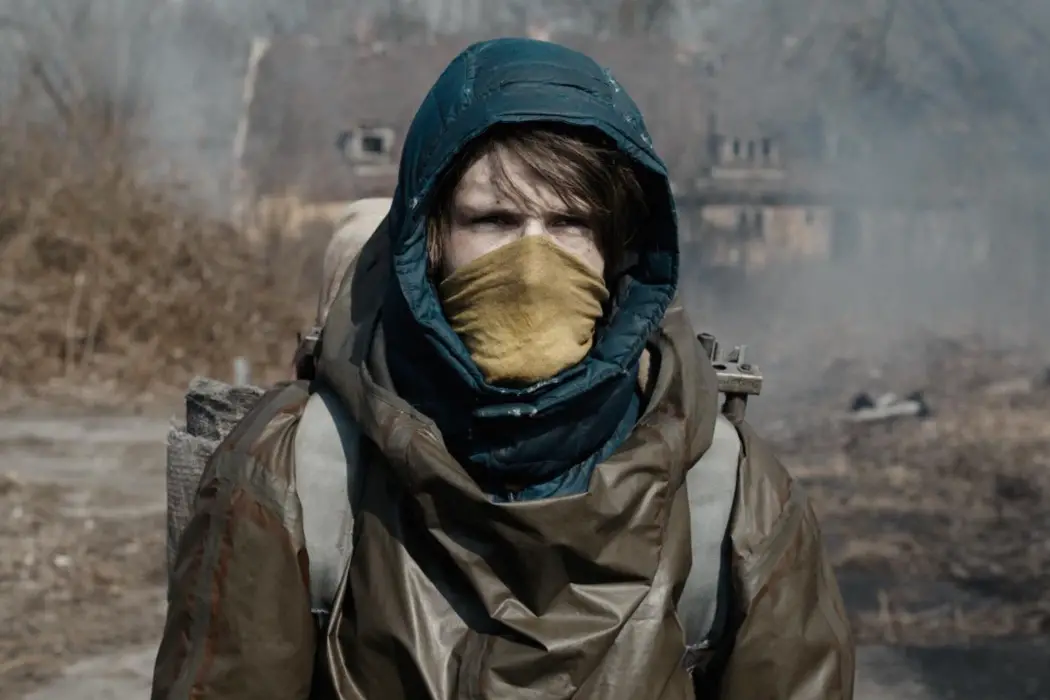
Andrew Stover is a film critic/writer from the Chicagoland. His…
The German-language sci-fi series Dark, co-created by Baran bo Odar and Jantje Friese, first premiered on Netflix December 1, 2017. It was a tenebrous and forbidding mystery series laced in time traveling enigmas, and it all started with the disappearance of young Mikkel Nielsen (Daan Lennard Liebrenz), an 11-year-old boy in the secret-riddled town of Winden. And if this secretive and cheerless town taught me anything, it’s that secrets can deeply hurt others, but the truth can also be the final ingredient to one’s deleterious drive. Also, these people need to evaluate the morality of their relationships.
Season two of Dark expands the mystery and the concept of time. No, nothing throughout season one (and two for that matter) is going to provide a deep-dyed answer to humanity’s most significant philosophical questions, but in Dark, time is employed as a weapon — but whether or not time is being used in a holy fashion, depends on the character, but nobody is free from fault. In fact, season two will have you on the edge, seeking the best in the characters you know, but realizing who you thought you knew may not be as innocent as you originally predicted.
Season 1 Overview
Mikkel vanished while venturing the woods with his older sister, Martha (Lisa Vicari); his older brother, Magnus (Moritz Jahn); Magnus’ girlfriend, Franziska Doppler (Gina Stiebitz); Martha’s boyfriend, Bartosz Tiedemann (Paul Lux); and their classmate, Jonas Kahnwald (Louis Hofmann), Martha’s ex who newly returned from a psychiatric institution following his father’s suicide. They went searching for a cave containing a stash of drugs left behind by a missing kid, Erik Obdendorf, but Mikkel vanished before finding any drugs or making their way back home.
The disappearances of Mikkel and Erik are soon revealed to be related to an esoteric portal in the caves positioned underneath the power plant. In 1986, an indefinite explosion occurred, prompting the opening of the wormhole through time. Every 33 years, the sun and moon align, allowing any knowledgable traveler to access the portal to 33 years in the past (1953) or 33 years in the future (2019). A mysterious figure called the Stranger (Andreas Pietschmann) delivers Jonas with a package containing Jonas’ father’s suicide note, along with rigorous instructions in how to use the portal in the cave. In this note, it explains how Mikkel Nielsen stumbled through the wormhole, ending up in 1986, was adopted by Ines (Anne Ratte-Polle) and raised as Michael Kahnwald, eventually becoming Jonas’ father. Woefully, this makes Jonas’ stimulating relationship with Martha a bit crooked and unnatural, ultimately because she’s technically his aunt.
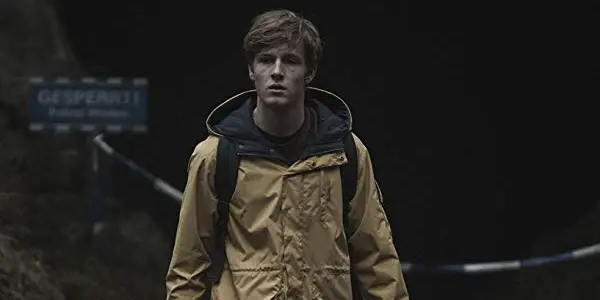
Soon enough, the Stranger is revealed to be an older Jonas, whose original plan was to create a device (utilizing the brilliant mind/book of H.G. Tannhaus in 1953, nuclear waste from the plant explosion in 1986, and Ulrich’s smartphone from 2019) to clog the wormhole, but ends up being the creation of it in the first place. Teenage Jonas finds himself propelled to Winden, 2052, where the landscapes, buildings and houses are now in ash or worn down by a catastrophic disaster.
Initially traveling to 1953 to murder a younger Helge Doppler (Hermann Beyer), someone he believes to be the murderer, Ulrich Nielsen (Oliver Masucci) is convinced he can prevent the future murders of Erik and Yasin, along with the disappearance of Mikkel, by killing Helge. Despite finding the bodies of Erik and Yasin in 1953 (when they originally died in 2019), Ulrich is imprisoned for the murders of Erik and Yasin, brought in by a young Egon Tiedemann. He’s been ensnared in a psychiatric institution and left to rot in the wrong time.
Charlotte Doppler (Karoline Eichhorn) is the police chief of Winden and her grandfather is clockmaker/author H.G. Tannhaus, who wrote the book A Journey Through Time, a novel in which the Stranger will exploit to build the device to “close” the portal. In the first season, Charlotte’s married to a cheating man named Peter (Stephan Kampwirth) and came to realize time travel is very real. She also has two kids, Franziska (dating Magnus Nielsen) and her younger sister, Elisabeth, who is deaf. At the end of the first season, Charlotte is trying to divulge the complicated timeline and the surreal photo she came across of her colleague Ulrich, taken in 1953.
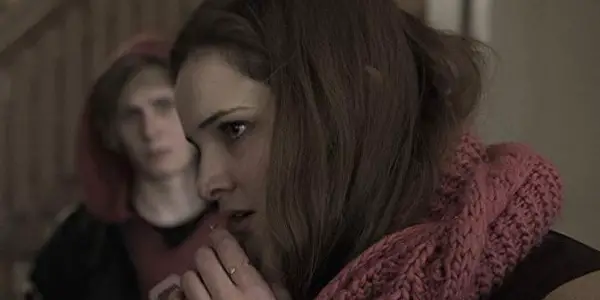
In 1953, Claudia Tiedemann was the daughter of police officer Egon Tiedemann. In 1986, she’ll become the director of the power plant. But as we already know, Claudia is a time-traveling combatant by the year 2052, and she travels between the 33-year loop to wage war against Noah (Mark Waschke), and the one in charge we would soon learn to be a man named Adam. Noah and Adam want to bring time to a halt and start a new cycle, while Claudia wants to preserve the world already unfolding in an endless loop, but cease the cycle and apply some improvements. Noah is always skulking around, and the end of the first season had the enigmatic Noah manipulating Jonas’ best friend, Bartosz Tiedemann, persuading him that Claudia (his grandmother) is the real enemy and Jonas is her puppet. Bartosz’s exposure to Noah’s outlook illustrates how susceptible a teenager’s mind can be.
Through all of the time-traveling antics and paradoxes, there’s Hannah (Maja Schone), Jonas’ mom, who is enduring the loss of her husband and the disappearance of her son (who’s now in the future, but the older Jonas is roaming nearby). And there’s Katharina (Jordis Triebel), mother of Magnus, Martha and Mikkel, who is undergoing the disappearance of Mikkel and her husband, Ulrich. Emotions had their place in season one; the characters were fueled by resentment, anger and grief. The story of Jonas and the Stranger proves to be the most weighty plot thread, but everything is connected, right?
Where Are We Now?
Six months after the events of the season one finale, the teenage version of Jonas is still mired in a post-apocalyptic Winden. Jonas is venturing the dingy town in search of a way back to his time, finding shelter in an underground bunker where photos are hung up, aligned together with strings and meant to paint a more vivid picture of how everything and everyone is connected. Played by a brooding and agile Louis Hofmann, Jonas makes us care about his hazardous situation, even though he’s relishing carnal visions of Martha, who happens to be his aunt. While being overwhelmed by memories of these badlands, this tactile cloak of doom overcomes Jonas and viewers alike, making us acutely reflect on the fact that this is the dreadful destiny of Winden. Udo Kramer’s hypnotic production design sketches a dour and lifeless future, measured in ash, despair and radiation. The set pieces are depressingly meticulous in portraying a town (before and after the power plant disaster) run down by secrets and disappearances.
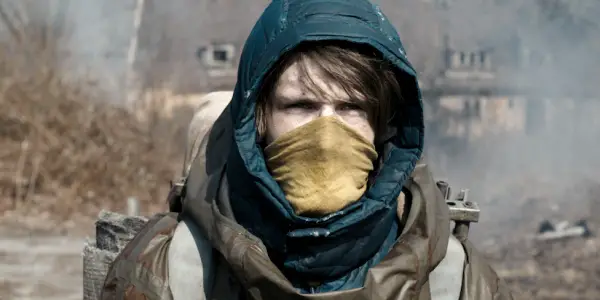
Because we saw the future, there’s a presentiment of ruination during in which Claudia and the Stranger are trying to reconstruct a perennial time loop. Seen through the eyes of teenage Jonas, we experience the aftermath of the power plant explosion, but time is an even more detrimental tool. The 33-year time loop expands in this newest season. The scenes now jump from 2020 to 2053 to 1921 to 1954. Although constantly busy, the characters are captivating enough to keep our eyes glued to the screen and our minds sharp.
The present-day highlights a grief-stricken Hannah, who is counting the days of her son’s disappearance. Sooner than later, the older version of Jonas (the Stranger) reveals his identity to Hannah and elucidates everything to her regarding the ceaseless time loop, the location of her Jonas and the involuted Mikkel situation. Bartosz is passively watching his mother, Regina, suffer through cancer and treatment. This season, Bartosz is Noah’s puppet but still has very little to do, but Lux is still convincingly frustrated and unreliable, which helps advance the subplot with Martha, Magnus, Franziska and Elisabeth.
Back at the high school, a new investigator named Clausen (Sylvester Groth) introduces himself, trying to persuade the clamorous crowd of fearful parents by reassuring them he’ll bring a fresh perspective to the missing person’s cases. Unfortunately, his attempts are futile, including the illustrative reference of an elephant’s appearance, and how 10 people would formulate distinct observations of an elephant’s mien. He uses this example to elucidate his presence in the investigation (you know, a new pair of eyes, looking at a seemingly connected string of missing person’s). Groth plays a pestilent detective convincingly, but his presence, despite contributing a lot more to the cycle than originally expected, is enervating.
Magnus and Franziska are still together, but Bartosz and Martha are drifting apart. The teen relationships hold hardly any gravity, but Jonas’ and Hannah’s uncommon feelings for Martha and Ulrich have a certain appeal because their romantic hankerings are odious. When it comes to love, rationale is thrown out of the equation, but the emotions Jonas feels for Martha and the emotions Hannah feels for Ulrich are visibly sordid. Martha may not know Jonas is technically her nephew, but Jonas certainly does.
Charlotte is working with her husband to unmask the clues of the disappearances, which includes the deliberation of time travel. Eichhorn plays one of the more likable and resolute characters as Charlotte, who is more keenly realized this season and given the chance to wrestle with a damaging secret; so confounding in fact, the reveal officially adopts the time-tangling chaos, willfully. Katharina is now suspicious of the cave and investigating its nature, desperately craving answers and the return of her husband and her son, Mikkel. In hindsight, the truth of Mikkel being Jonas’ father and Hannah’s husband, is what drives Katharina to want to rescue Mikkel even more than before, predominantly because Hannah has corrupted Katharina’s family: Hannah slept with Ulrich and (an older) Mikkel. Katharina and Hannah are both unlikable, but Schone and Triebel render their feud in an irresistibly toxic manner.
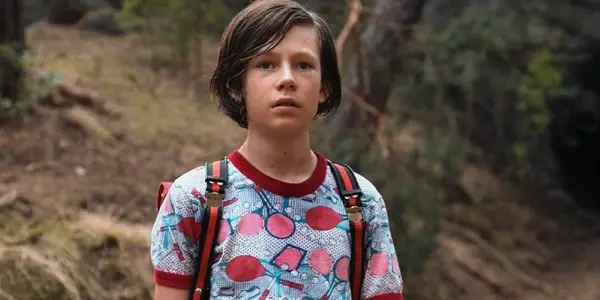
Throughout the season, you can expect all of these characters to encounter their own demons, their own emotions that drive them to react impetuously — some of whom become more developed and involved — while also facing themselves, as characters occasionally stumble upon their older and younger selves (even talking and explaining everything to another version of themselves). But the thing is, no matter how many times these characters literally face themselves, all of them are entangled in an infrangible cycle, perpetually prompting their inexorable fate. Answers are unveiled, but their fates are sealed unless Jonas finds a way to transmute it.
The time-traveling narrative and the ample array of characters are enough to evoke a bitter headache, yet there’s relish in the pain and unknowing direction of Baran bo Odar and Jantje Friese’s intoxicating storytelling, which dupes us, the susceptible viewers, like fools, or potentially grooming us as scholars? Either way, viewers are enchanted by how Odar and Friese effectuate the script’s showy vanity and render it emotionally and visually enticing.
“Do Beginning And End Even Exist?”
What transpires in this season is a good and evil war between Claudia Tiedemann and Adam. That’s right, the comminatory and softly spoken priest named Noah (Waschke), first seen in the first season and alluding to devilish desires, isn’t the mastermind behind the “evil” side, known as the Travelers. Noah’s merely a follower (or pawn) of Adam, but that doesn’t alter the character’s spellbinding development. Noah’s still intimidating and unpredictable, but his motivations, temptingly become emotionally blurred as the episodes move along and a family secret is revealed, making him human. And it’s hard to believe Adam is human as well, speaking as his plan is set on breaking the cycle of repeated events by undoing time itself. Claudia believes there’s a loophole within the cycle, and Jonas is the one who can change the events without undoing time. These two sides both appear defective, however, and as the apocalypse is being counted down in 2020, it does feel like we’ve been here before. And in a way, we have been here before. But where did it all begin? Let’s take a look chronologically.
In 1954, a young and physically scathed Helge returns, but having been influenced by Noah, Helge only speaks to Noah, refrains from mentioning Ulrich’s shameless attempt to murder him, and like the infamous Noah, solely worships time. Egon’s investigation into Helge’s disappearance leads him down a path, somehow relating to a mysterious figure called “The White Devil”. And for years, he’ll keep “The White Devil’ in mind, yearning to know who that could possibly be, and if he/she’s the one who kidnapped Helge.
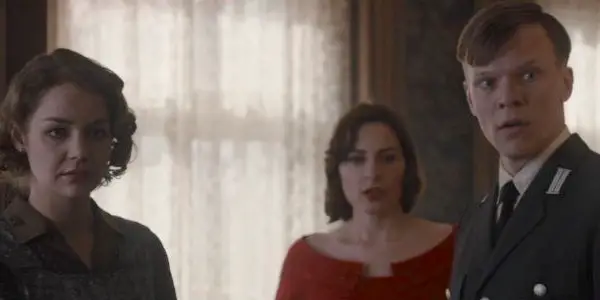
In 1987, an aging Ulrich is still imprisoned in a psychiatric institution for the murders of Erik and Yasin. An older Egon, the one who caught Ulrich in ’53, finds himself revisiting Ulrich. Egon’s daughter, Claudia (future time travel warrior), is learning the powers and knowledge of time travel. The 1986-87 version of Claudia deviates from her job as Winden’s power plant director and seeks purpose in the time-traveling instruments given to her…by her — further outlining the Bootstrap Paradox, which is when an object or idea has no clear-cut genesis of what prompted them to exist in the given timeline.
Also in 1987, Mikkel is struggling to adapt to his new life with Ines. Ulrich does discover that Mikkel is living in this time (as is he, but in a guarded psychiatric institution), and his motivation to reunite with his son is comprehensible and empathetic, but the future, of Jonas, specifically, speaking as he’s Mikkel’s son, is already written. Daan Lennard Liebrenz as Mikkel is superb, radiating the emotional tribulation of having to leave his family and time period in a performance low on words, but empowering in facial distress.
The imperishable fate that awaits the characters, and how they’re just a cog in a machine, sustain the concept of the Nietzsche’s Doctrine of Eternal Recurrence, the notion that events from the past and future will recrudesce again and again and again — and that’s how Dark is able to function without feeling an urgency to expound everything. But Dark’s characters are too layered to simply shrug off their barren endeavors to change the fixed time loop. Ulrich is doomed, Mikkel is mired in the ’80s, and the teenage Jonas learns another secret that very well relates to his own existence (forget college, Jonas is due for a breakdown before even hitting the mid-life point). Yet, even though several of these characters have to fail in achieving their ambitions, their motivations are compelling.
So yeah, teenage Jonas does find a way back to the past, finding a big blob of indeterminate matter in Winden’s crumbling power plant, soon to be revealed as the “God Particle”, but he’s catapulted to the year 1921 instead of 2020. This is where the younger Noah subtly mocks Jonas, saying the only way to get back to his year is to speak to Adam. Jonas meets with Adam, the one behind the Travelers, and is subjected to Adam’s manipulation.
In 2020, Hannah, Charlotte and Peter are trying to unscramble the timeline, while a vexed and rancorous Katharina has her eyes set on rescuing Mikkel. Hannah is even crueler in season two. Also in 2020, Martha, Mangus, Franziska and Elisabeth procures Bartosz’s time machine and plays around with it, learning very slowly of the labyrinthine time loop they’re entangled in.
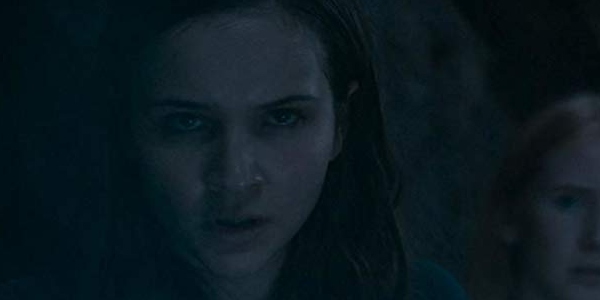
However, not everything befalls this way; nothing is genuinely chronological and time is fractured. In season two, more secrets are certainly manifested, and it’s true what they say, everything and everyone is connected. But where does it begin? In reality, we look at the past as the past, viewing 1921 as the events before 1954, and how 1987 came before 2020. In Dark, there’s no lucid origin or conclusion, each part can be recalculated by utilizing time as a godly faculty.
The Bootstrap Paradox ensures the past helps create the future, but the future also helps create the past. Dark’s serpentine narrative could easily be perceived as self-indulgent or irrationally complex, but there seems to be an actual conclusion to a series that’s dedicated on not establishing an origin to the story. It also helps that these characters are deeply afflicted by their own doings and images of themselves. In simpler terms, the characters are their own worst enemies, steered by their distorted intentions and emotions, and time is not on any of their sides. They may use time travel, but no matter what (at least in Dark’s joyless world), it’s when you do something instead of how.
“The Question Is Not How, But When.”
This quote first appeared in the season one premiere, but finds its way back in episode five of season two, Lost and Found. It’s the emotional piece that renders this entire puzzle worth the patience and diligence. As a viewer, it’s your job to probe the characters and the plot fragments. Dark isn’t light entertainment, it digs deep in the grubby contents of time, love and depravity. Mikkel first said “The question is not how, but when,” during the season one premiere, and this precise line of dialogue is what Ulrich references to convince Mikkel he’s his father, despite being the year 1987 and looking much older (the make-up work is quite impressive). Although it’s meant to delineate the father-son love between Ulrich and Mikkel, and how profoundly wounded Mikkel is by having to leave his family in 2019, the quote is tailored to fit the puzzling concept of Dark.
The majority of season two foresees the complication of human interaction and interference. Maybe it’s not how we go about to ameliorate a direful outcome, maybe it’s when we do it that counts. Granted, it’s never extremely certain when the right time would be to go about to balk a boiling conflict, but maybe fate has to be engulfed in the discourse of preventing a calamity. Shouldn’t we tackle the problem sooner, rather than later? Maybe; but what if our disruption in the process triggers something entirely worse, internally? What if we change because of it? Maybe we were meant to change, and whether or not the person we become is measured in kindness, virtue or baseness has to do with fate?
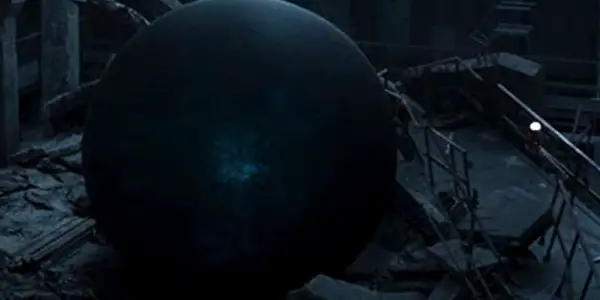
If fate is real, and if a calamity or tragedy arises, who’s to say we could have been done anything to foil it? Ulrich is trapped in the wrong year and confined to a psychiatric institution, forced to confront fate, even if he doesn’t know it yet. Since Mikkel is Jonas’ father, he’s enduring fate by being stuck in the ’80s. In Dark, if Jonas already exists, Mikkel can’t return. Without spoiling a big reveal, the disappearance of Mikkel was orchestrated punctiliously, and it had to do with “when” more than “how”. In reality, if we failed to obviate a disappearance, disaster or tragedy of some kind, we would spend prolific amounts of time trying to figure out what we did wrong. But maybe it is what it is because of destiny, not at all having to do with free will.
In Dark, the older Jonas and Claudia believe they’re doing something different this time around to impede the apocalypse, but from the looks of the last episode, Endings and Beginnings, Adam has created the version that’ll gratify his corrupted aspirations. (Major spoiler) But the last five minutes of season two leads us to believe the world of Dark is expanding, but the question remains, is it still part of Adam’s plan for teenage Jonas to travel to another world? Probably not, but who knows? All I know is that the seed of intrigue is once again planted in the season two finale.
Dark: A Connected World Lost In Time
Personally, my favorite episode is episode four, The Travelers. It’s an episode that explores Jonas’ adventures in 1921, alongside a younger Noah, who inveigles Jonas to meet with Adam. It’s also where Hannah, Charlotte and Peter share what they know. The kids — Martha, Franziska, Magnus and Elisabeth — steal the steampunk time travel device from a clueless Bartosz, who has no idea of what Noah wants him to do. Sprinkle the wonderfully outrageous twist at the end, The Travelers begins fully embracing the warped and frenetic time-traveling landscape it built, and what Odar and Friese continue to upkeep with unrelenting storytelling and a gripping atmosphere.
Upheld by a riveting electronic-infused score and arresting cinematography, outlining harsh hints of grey and unwavering camera shots, the setting of Winden holds more hellish features than Hell itself. Everything looks dreary and dismal. The drama is punishing and the romances are pretty icky. You thought “Game of Thrones” had its fair share of incest, you ain’t seen nothing yet. Strangely enough, tinkering with such a fixed timeline could never feel more convoluted. Even though the time-twisting narrative consumes the characters and their time, counting down the days till the apocalypse, season two of Dark is even more eerie, shadowy, trepidatious and character-driven than last season.
Dark is still a time-traveling minefield, provoking characters to coast through time, evolve and alter their original impulses, or maybe that’s part of the cycle or part of a bigger plan? At this point, Odar and Friese have us caught in their mesmeric journey through time, pushing us to decipher the riddle and purpose with our own devices (although, a steampunk time travel device would be pretty cool).
Did you watch season 2 of Dark? If so, what are your thoughts on it? What do you predict will happen? Let us know in the comments!
Season 2 was released on Netflix on June 21, 2019. Both seasons are now streaming.
Does content like this matter to you?
Become a Member and support film journalism. Unlock access to all of Film Inquiry`s great articles. Join a community of like-minded readers who are passionate about cinema - get access to our private members Network, give back to independent filmmakers, and more.
Andrew Stover is a film critic/writer from the Chicagoland. His film & TV reviews can be found on Film Inquiry & Film Threat.













